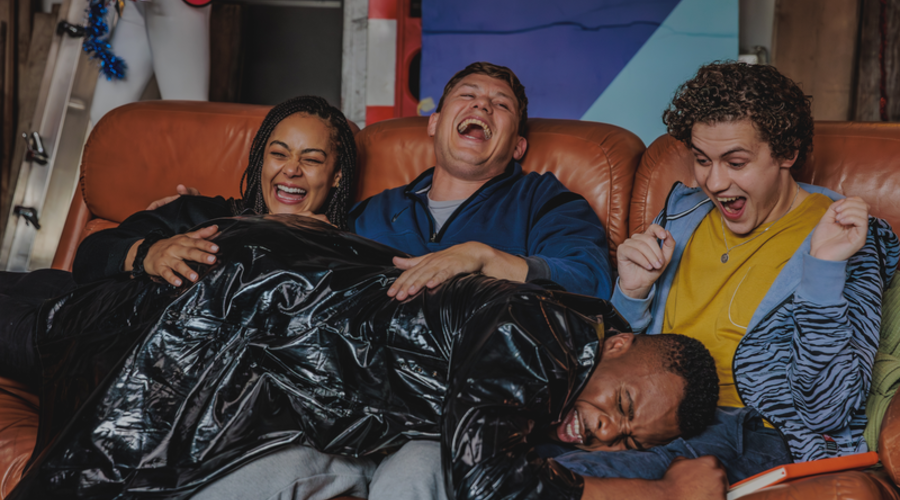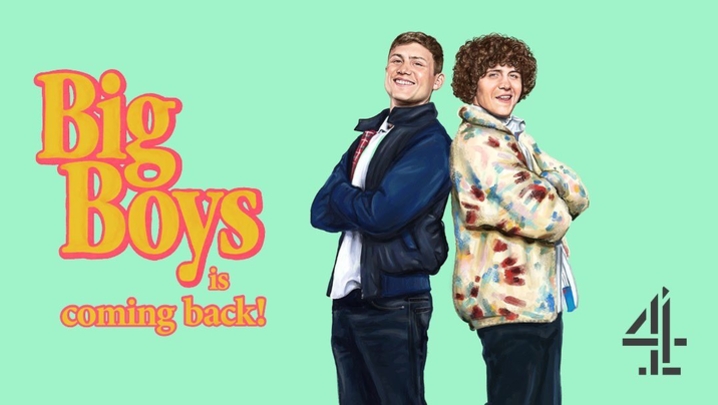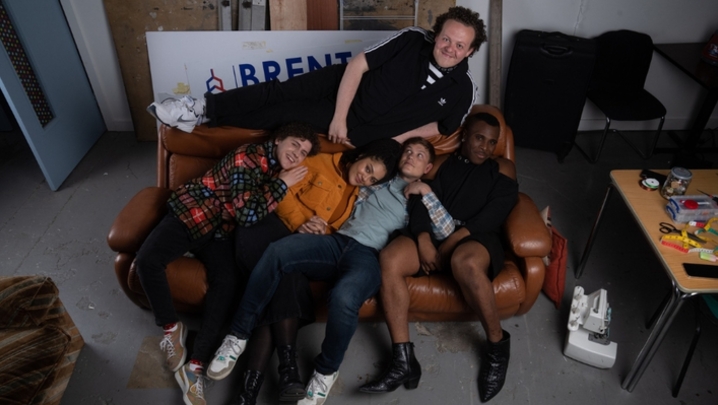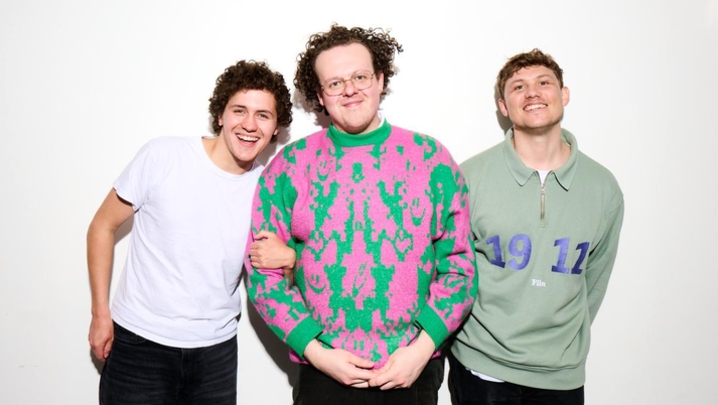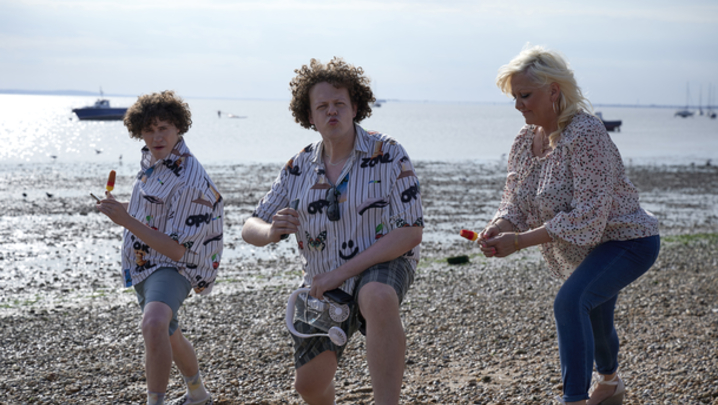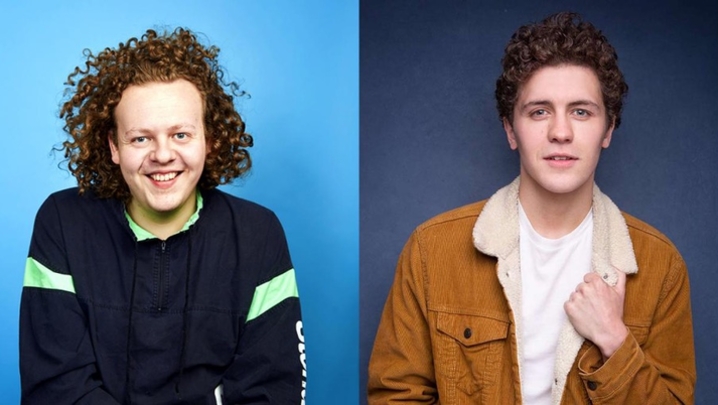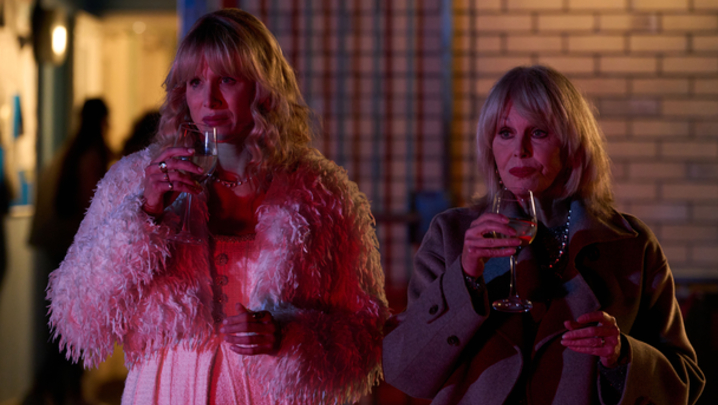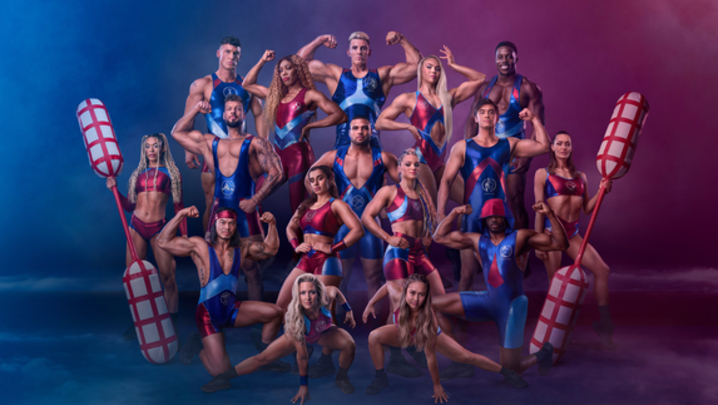The poster for its final series glitters with five star reviews, but apparently Big Boys almost never happened.
Earlier this week, Ash Atalla, who produced the series for his indie Roughcut TV, was on typically candid form as he spoke to the RTS about bringing Jack Rooke’s beloved semi-autobiographical sitcom to its highly-anticipated conclusion.
He revealed that, paradoxically, the making of Big Boys led to the best pilot he’s ever produced – but also the hardest commissioning battle he’s ever fought.
Atalla also elaborated on some of the key creative decisions that came out of their “long story meeting days”. This includes that finale – spoilers inbound – although apparently there’s an alternate version that featured a certain footballing megastar…
What your thoughts on the response to the final series? It’s been overwhelmingly positive.
It's a relief to end a series properly. It’s a relief to do it justice. When you're at the end of a sitcom or a drama, the final episode comes under scrutiny. They don't always work, and people always have opinions on how you've done it. It’s such a personal story to Jack as well, and I don't think I've ever been involved in something quite as delicate as that. Somewhere in this is a real life and a real person who went through that. And then you have to make good television out of that. You have to translate that into drama that is coherent and moving and sensitive to everyone.
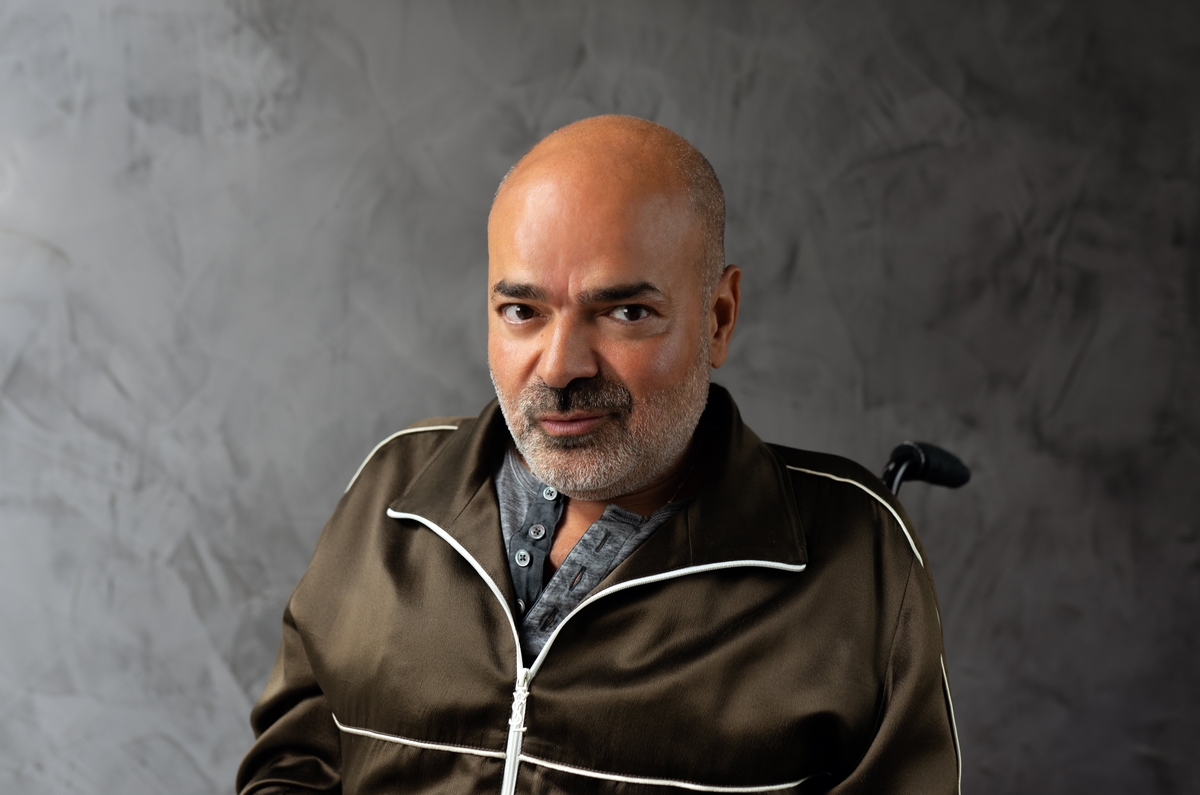
Big Boys was originally an Edinburgh Fringe show that Jack Rooke wrote and performed. When did you first become aware of it? And how did it eventually become a TV show?
It was Jon Petrie, who worked for me at the time and is now the Director of Comedy at the BBC, who saw the show first [...] Just before lockdown, people's Edinburgh shows started to become a lot more personal. Comedy went from being six sassy people in a flat share in Bermondsey, to pain and trauma and truth. And Jack's show, of course, is that to him. But it's a really big leap from an hour's worth of stand-up about your existence to creating a good comedy drama, so well done to Jack [for making that leap].
Do you think comedy has been limited by this shift to ‘comedy drama’?
These things are massively cyclical. There has been a massive outpouring of those stories: Baby Reindeer, Fleabag, we did a show at Roughcut called We Might Regret This. I think people were looking for authenticity and meaning. And I think that came off the back of people watching comedies and going, “This is all starting to feel very artificial, because people don't talk like that. This is how people talk, and it's messy and it's not always in zingers. It's about real life.”
Funnily enough, the current trend in comedy is now ‘hard funny’ […] It would be harder to get Big Boys greenlit now. We've had all manner of anguish and pain and humanity, and it's quite interesting how fast the market feels satiated by those.
So what happened after Petrie saw the show? What conversations were you having with Jack?
With Jack, we thought that the raw materials were there quite early, but it took time to get the script right […] It was a fairly tough process to get the BBC to commission the pilot, and when they did it was a crazy tiny budget. In my whole career, if you were to ask me, “What's the show that surprised me the most between the script and the budget, and how good it was when we got to the edit", I think the answer to that is Big Boys.
What made it so good?
Sometimes something just ends up arriving fairly complete. And I think it's a tonal thing. Sometimes we go, “F**k, we're trying to ‘find the show’. We use that expression so much for just trying to find that tone, and it can be very nuanced. With Big Boys, it’s got an inbuilt air of nostalgia, because it's not long ago but it's a little while ago. The warmth was there that wasn't a sentimentality, and a tone that didn't feel sickly but felt unusual. And I think Jim [Archer, the director] has a visual style that wraps it all together.
With Big Boys, we were like, “Whoa, okay, this loaf has come out of the oven and it's good to go.” And then the next bit of the story is quite funny, because with all of that confidence and all of that surety, the BBC didn't commission it.
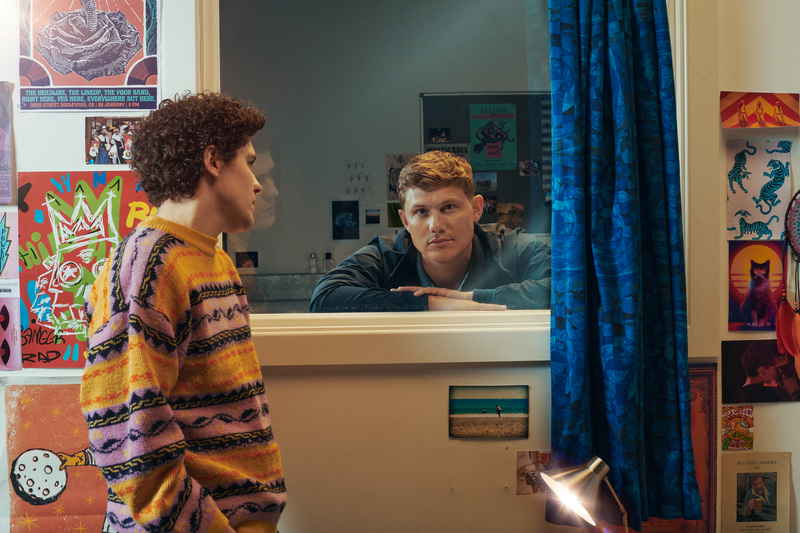
Did Channel 4 pick it up straight away?
It was tight there as well. At one point, the thought was it would go on E4 and therefore be a bit more boisterous, and maybe a bit more laddy, a bit more Inbetweeners-ish. But E4 then stopped commissioning entirely and in the end Channel 4 themselves said, ‘We'll take it’.
We had managed to get half the money from the BFI Youth Fund. They were about investing government money in shows that moved forward a discussion, and I think the grief and the sexuality were things that spoke to young people […]
The final sting in the tail was that just as Channel 4 gave the green light, COVID came in. And then Channel 4's first response was, after all that, “We can't make this.” When the dust settled and everyone regained their balance, we then made the argument that if you're trying to save money on shows, then cancel some of the other shows that you don't have half the money for. So it's a show that I had to get commissioned about three times.
How did the process compare to your previous commissions?
It’s one of the hardest in ways that I can't necessarily understand. None of them are easy. But in a sense it was one of the easiest for me because my belief was so strong. You pick your battles. Sometimes you go, “There is a world in which this could be a good show, but am I going to go to the front line for this one and take a bullet? No, because I will do that for this show.”
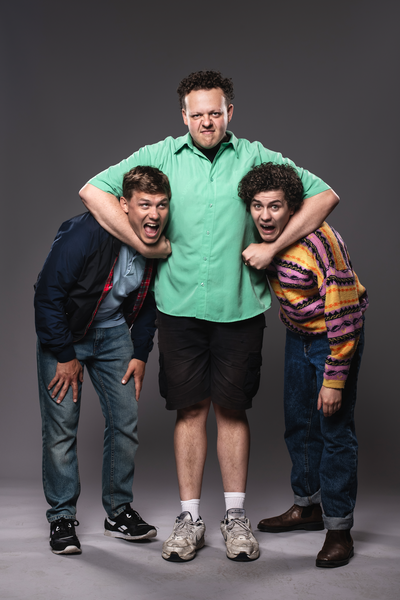
(credit: Channel 4/Matt Crockett)
Jack described this series as a “massive f**king swing”. What was so creatively risky about it?
Some of the time jumping around that we did in episodes five and six were [risky]. And Jack, as the narrator, had occasionally appeared in vision in the previous two series, but not as much as in this one. I always said [to Jack] we should try it but we should build our shoot so that we've got a show if it doesn't work.
‘Surreal’ isn’t the right word, but you're definitely playing with form. And some of the best work does that so there's no lack of ambition from us in trying to make it work. I just think, in layman's terms, how often have you been watching something and you go, “What the f**k did they do that for?” […] I remember saying to Jack, “The bad version is it looks like rent-a-ghost, or it's just like, what's happening and what are the rules of this world?” But I felt that we had proved the device works in series one and two.
How was the production of series three? Jack mentioned in an interview with The Guardian that the budgets were quite small for this series, but it still seemed like such a joyful set.
Comedy budgets are, pound for pound, significantly lower than drama budgets. We all deal in words and act the same words, and so if those words are funny, we're like, “Why does that come at a lower tariff?”
The other thing is, you think, “Oh, the show's a success, it's had [award] nominations, surely after that people will reward you with a bigger budget. But the truth is that kind of success doesn't necessarily turn into more dollars for anyone, and we’re all trying to wrestle down inflation in our industry. Salaries go up, not down […] So the net effect of all of that is, by the time you get into the third series of something that feels successful, you feel like you've got less money than the first series. So the final lap of honour, where you're all in Jacuzzis and drinking Dom Perignon, never comes.
But [the cast] became a real on-screen and off-screen family. I think the truth is they'd all grown up a little bit in the show. Jon Pointing always says, by the time the guys finished The Inbetweeners they were in their 40s. When they’ve got to play college kids, there's a moment where I guess we would have had to give everyone Botox, but we wouldn't have had the budget!
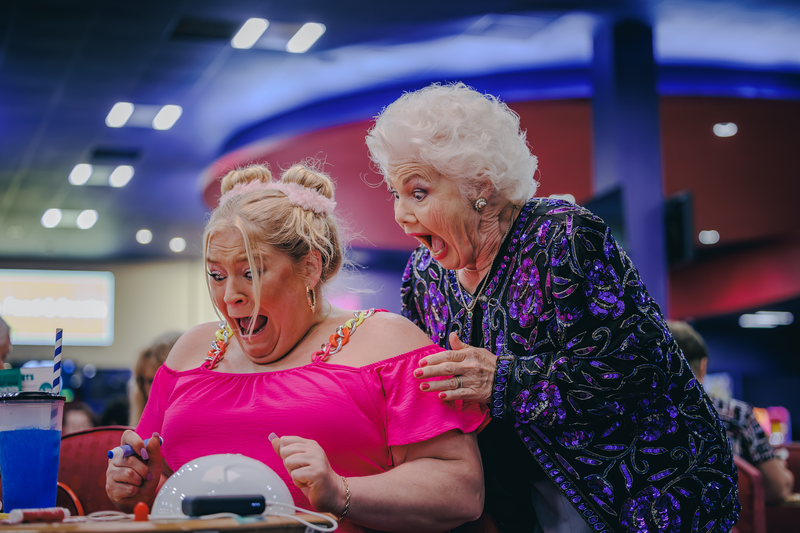
(credit: Channel 4/Patch Dolan)
Some characters really came into their own in series three, especially Shannon (Harriet Webb). Did you set out to explore certain characters more?
We felt we'd explored quite a lot of the college-based rhythm and calendar of what it is to be at university: the nights out, the drug taking, the getting off with people, and then, of course, we had all of Danny’s story going on at home. So I think we felt that [it was time to do] another big story. Also, you look at the actors and you ask, 'who feels underused here?'
I think in [Shannon’s] case, we just loved the warmth. She's the broad comedy, and she allows you to do the Danny story as well. It's a show that switches between gears, more so than anything I've ever done. Sometimes within a scene there's a laugh and then a real cry. So tonally, it's unlike most things. But if you're going to tell a story that has the heartbreak of Danny's, then it's great to have a story that has the insanity and joy and bigness of Shannon’s.
What were you trying to do with that finale?
We discussed all sorts of things. I'm pretty sure there's an ending where David Beckham turned up that Jack pitched to us, and there was a good reason for it. But in the end it was decided that the rock bottom of the story would be at the end of episode five, and the brilliant idea Jack had was to give him another ending. You know, what was the alternate road that Danny (Jon Pointing) could have walked? I think that was a really beautiful thought. Once we all had that in our minds, it allowed the show to be really truthful, f**king heartbreaking, but also end on a note of optimism.
Why did you want to end it on an optimistic note?
It’s not to do with ‘leaving them on a laugh’. I'm thoroughly unqualified to speak to this, but I think the message is that there is another way […] I think it's a note of hope. And maybe Jack can speak to this, but a note of longing for what he wished his friend had done. I'm sure people who have lost somebody close to them in that way would all hope that they had taken the other road.
All three series of Big Boys are now available to watch on Channel 4. The final two episodes will air live on Channel 4 on Sunday 23rd February from 10.00pm.

